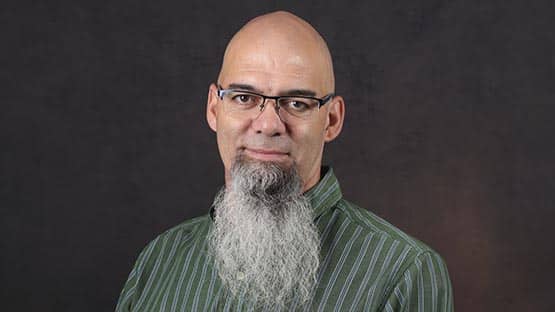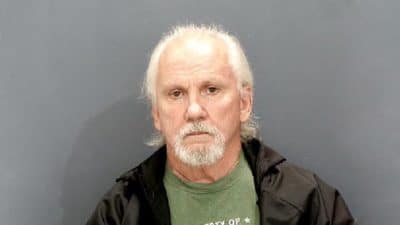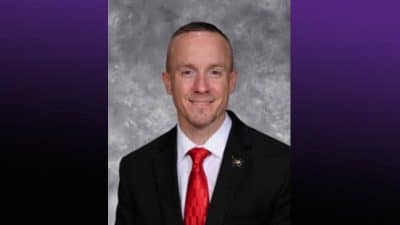The Top Story by Chris Graham
Agriculture is a $144 million-a-year industry in Augusta County.
Not that you would know that by the way that it is treated by the county’s political leaders.
“There’s still a learning curve there that we have to get past in recognizing that agriculture is an industry – and an important industry. It’s not just the nice little family farm,” said Nancy Sorrells, who represents the Riverheads District that covers much of the southern part of Augusta County on the Augusta County Board of Supervisors.
“One hundred years ago, the majority of the people in this country were still in agriculture. It’s not that way now – and now we have to try to find the right balance between industry and agriculture and residential growth. If we find the right balance, I think all three can coexist beautifully,” Sorrells told The Augusta Free Press.
Current county policies toward development seem hopelessly out of balance, many in the agriculture community are saying in the wake of the much-publicized effort of the board of supervisors to woo a large-scale manufacturer to an industrial megasite in rural Weyers Cave.
“The megasite was an eye-opener. A lot of people got some education – myself included,” said Charles Curry, a Mount Solon farmer and former county board of supervisors member, who chaired a task force that was created by the current board of supervisors in 2005 with the goal in mind that it would come up with a plan of action for revitalizing the local ag industry.
Among the recommendations that the task force presented to county leaders was one that would have the county create the position of agriculture-development director – which the board of supervisors agreed to do in a split 4-3 vote in February.
That move – and the move by the state to create a new Cabinet-level position of secretary of agriculture – are “steps in the right direction” as far as the recognition of the role that the agribusiness sector plays in the Shenandoah Valley economy and the Virginia economy is concerned, said Del. Steve Landes, R-Weyers Cave.
That said, local governments and the state can and must do more to include agriculture in their long-range economic-development plans, Landes told the AFP.
“I don’t think the state in particular does do enough. That was one of the reasons that the Rural Virginia Prosperity Commission wanted to push the issue of creating the position of secretary of agriculture – because of that lack of emphasis placed on agriculture,” said Landes, who chaired the commission and is a member of the board of trustees of the Center for Rural Virginia that grew out of its efforts.
“Agriculture is still the biggest business in Virginia – but does the state do anything, at least from the economic-development standpoint, to promote that, other than promoting Virginia products, where I think they do a good job? Do they look to help expand the underpinnings of the agricultural economy?” Landes said.
It would appear at the least that the state is lacking in terms of having a unified economic-development policy that includes agriculture. The involvement of the Virginia Economic Development Partnership, the state authority charged with the responsibility of promoting economic expansion in the Commonwealth, in agriculture-specific marketing is “limited,” spokesperson Christie Miller told the AFP.
“We’ve worked with food-processing and timber-related industries, but the Department of Agriculture and Consumer Services typically handles agriculture,” Miller said.
Curry, who was active in the Virginia Association of Counties in his time on the board of supervisors, thinks the state has a motivation for de-emphasizing agriculture in its economic-development planning.
“Job creation is always viewed as positive by the state government – because they get state income taxes, meaning they get paid back for all the jobs that are created based on income. And so the state doesn’t have the motivation and incentive to try to protect agriculture land,” Curry said.
“It’s all a political thing – it’s not about economics,” Curry told the AFP.
The establishment of a positive business and economic climate for farmers is crucial to the long-term viability of agribusiness in Virginia, said Hobey Bauhan, the president of the Harrisonburg-based Virginia Poultry Federation.
“It seems that farmers are facing more and more regulatory challenges and increased costs of doing business, and there are lots of pressures to convert land to other uses. So there’s certainly a lot that we need to do to promote agriculture to make sure that we’ve got a positive regulatory climate and a positive business climate for agriculture in Virginia,” Bauhan told the AFP.
“When you’re looking at creating a positive business climate for farmers, you really need to look at the big picture – and look at the availability of goods and services, an affordable and available workforce, the cost pressures on processors. What’s the cost of doing business for a farm? What are the competing land uses and pressures to convert to other land uses? You’ve got to look at all of that and make sure that we’ve got a good handle on things in terms of all of those factors,” Bauhan said.
There is still a lot of work to be done before we can get to that point with regard to agriculture policy, Landes said.
“With anything, when you’ve been the leader at something for so long, I think it’s just a matter of taking it for granted,” Landes said.
“I don’t think it’s an intentional neglect, per se – it’s just a neglect by virtue of having been the leader for so long. But if we’re going to maintain that, if we’re going to maintain what we have and grow for the future, we’re going to have to get serious about promoting agriculture,” Landes said.
(Originally published 07-10-06)










